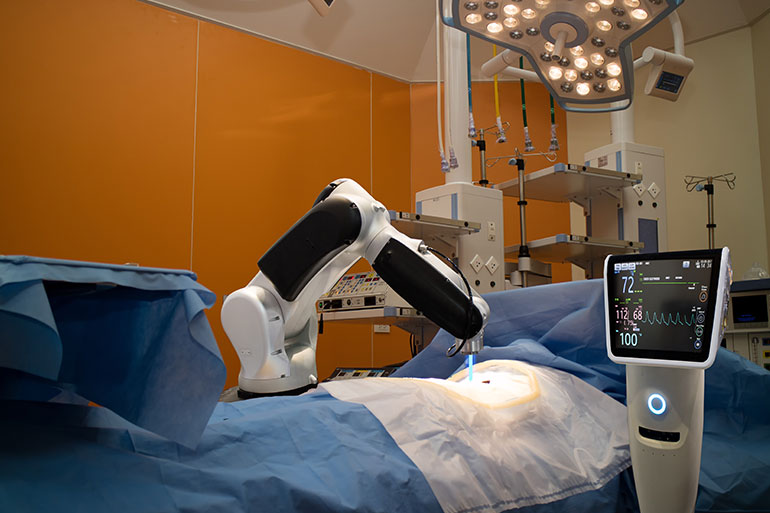
AI’s Advance in Medical Diagnosis: A Game-Changer for HealthcareAI’s Advance in Medical Diagnosis: A Game-Changer for Healthcare Artificial intelligence (AI) has emerged as a transformative force in healthcare, revolutionizing the way medical diagnoses are made. AI-powered diagnostic tools offer groundbreaking capabilities that have the potential to significantly improve patient outcomes and transform healthcare delivery. 1. Enhanced Precision and Accuracy: AI algorithms can analyze vast amounts of medical data, including patient records, imaging scans, and laboratory results, with unprecedented speed and accuracy. This allows doctors to make more informed and accurate diagnoses, reducing the risk of misdiagnoses and enabling early detection of diseases. 2. Time-Saving and Efficiency: AI-assisted diagnostic systems automate many time-consuming tasks, such as image analysis and data interpretation. This frees up clinicians to focus on patient care, reducing their workload and increasing efficiency. Faster and more accurate diagnoses also streamline the overall healthcare process, leading to reduced wait times and improved access to care. 3. Personalized Medicine: AI can create personalized profiles for individual patients, taking into account their unique genetic makeup, lifestyle, and medical history. This allows doctors to tailor treatment plans to each patient’s specific needs, leading to more effective and targeted therapies. 4. Early Disease Detection: AI-powered diagnostic tools can detect subtle patterns and anomalies in medical data that may be invisible to the human eye. This enables early detection of diseases, even at asymptomatic stages, when treatment is most effective. Early detection can improve patient survival rates and reduce the severity of long-term consequences. 5. Cost Reduction: By reducing the need for unnecessary tests and procedures, AI-assisted diagnosis can decrease healthcare costs. Faster and more accurate diagnoses also lead to reduced hospital stays and readmissions, further saving resources. Challenges and Considerations: While AI has great potential in medical diagnosis, it also presents certain challenges and considerations: * Data Quality: AI algorithms are dependent on the quality of the data they are trained on. Ensuring the accuracy and completeness of medical data is crucial for reliable AI-based diagnoses. * Interpretability: Making AI models interpretable and explainable to healthcare professionals is essential for building trust and acceptance in the use of AI for diagnosis. * Bias: AI algorithms can be susceptible to biases present in the training data. Mitigating these biases is crucial to prevent unfair or inaccurate diagnoses. Conclusion: AI’s advance in medical diagnosis is a game-changer for healthcare. It offers the potential to enhance precision, save time, personalize medicine, facilitate early disease detection, and reduce costs. However, addressing challenges and considerations, such as data quality, interpretability, and bias, is vital to ensure the responsible and ethical use of AI in medical practice. As AI technologies continue to evolve, the future holds immense promise for transforming healthcare and improving patient outcomes through accurate and timely diagnoses.
Posted inNews